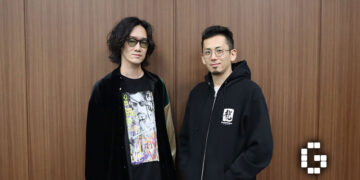It’s been about a week since China’s minor ban– that is, a new law limiting hours minors can play games to three hours a week, split up into 1 hour a day over the weekend, with added limits to what time they’re allowed to play.
I’d already covered my other doubts about this ban previously, where I talked to parents and curfew children about just how insane the idea is to begin with- so I won’t be treading old ground there.
Instead, we’re going to look at one more side of this- how it’s going to affect esports.
Any professional will tell you that the key to getting good at something is putting in the time. It’s a common saying- you need 10,000 hours to get good at something. While not literal (no one has praised me on my ability to slack off yet) the spirit of it is true- the more you do something, the better your odds at being good at it are.
Losing Out On Fostering Talent

Unfortunately, with China being a wet blanket about the time minors are allowed to spend online, they’re taking a massive hit to what could be a booming esports sector. After all, just like every pro athlete who grew up playing football in the school (be it with a ball or a crushed up water battle), the childhood adoration phase is a powerful ramp to success.
It’s easy to pick an esports idol, all you have to do is find a game you like- be it DOTA or Guilty Gear, and you’ll undoubtedly find good players either streaming, or recordings of them playing their best. That in turn makes you want to play like them, leading to the level of effort required to start joining tournaments.
Unlike back in the day where the best player you knew probably lived in a cybercafe or arcade, it’s really easy to get into esports as a kid. But with console makers putting hard limits into how much time you can spend, you’re going to have a generation of pro athletes only getting their start much later in life. I’m not saying there’s anything wrong with older esports athletes (heck I didn’t go to EVO until I was 27), but I think people forget just how powerful a tool for improvement youth can be.
Some of the Best Players Started Young

This isn’t just blue-sky thinking either: SonicFox, largely considered one of the biggest names in the FGC made their EVO debut when they were 13, winning their first EVO at age 16. They’ve then gone on to have a largely successful career spanning Mortal Kombat, Injustice, Skullgirls (to the point they make a cameo in the training stage) and most recently even Guilty Gear Strive.
Similarly on the MOBA front, many professional players tend to skew younger, with players like QQQ holding up the older end of the spectrum having competed in The International 2012 at age 27. All the while you have stories like DOTA player SumaiL, who was scouted for Pro team Evil Geniuses at age 16 or Chinese League of Legends player Flandre, who also debuted at age 16.
Does this mean you can only get in if you’re old enough to have outstanding math homework? Not at all. But trends exist for a reason, and restricting your own pool of talent sounds like the perfect recipe for self-sabotage.
The Seemingly Unlimited Power Of Youth
Look at it this way. When I was a kid, I had seemingly infinite energy. I’d wake up at 8am on a Saturday, buy some new AA batteries for my sister’s Gameboy Color and play Pokemon Go until the Gameboy literally died on me. Thanks to the cartridge’s own dead battery, it would never save my progress, so every time I engaged this ritual (which was at least once a month) lo and behold, I’d be starting from scratch.
Now, with a full-time job and social obligations? Any game that presents even the slightest slope of inconvenience becomes a chore, another parasite to the increasingly gold-tier value of my decreasingly free time. And unfortunately, just starting out to learn a game is going to be full of slopes like that.
Back in high school I knew people who would actually blow all their free time on games like DOTA, much to the chagrin of their girlfriends. After all, you’re 16, what else have you got to do? Violin classes, school and extra classes are nothing compared to having to remind the people in your lives that you still exist lest they get married and forget to invite you, which takes a much larger chunk of your life than you’d expect.

You also start craving balance more in your life when you’re older- Guilty Gear Strive is one of my favorite games, but some days even I don’t like being reminded that I have few options outside of wake up DP and YRC into H,S, 236H pressure (if you know, you know). Some days, you just need a break- and you’ll wanna play something else. God forbid, you might even want to go outside and meet people- this is the folly of age, you’re actually willing to part with your game time in favor of such frivolous things as holistic life choices.
But back in the day? You only had the one game to play, and you found joy in it no matter what. This of course isn’t a universal truth, but it’s a common enough sentiment- some people made games like DOTA so ingrained in their personality, of course any time spent gaming was spent pushing lanes.
Addressing Big Problems

I agree that video game addiction is bad- especially with how bad modern games have gotten into pressuring you to play every waking second. But I also believe that one of the joys of your youth is getting really into something and just sorting out the balance for yourself. Sure, at first it’ll affect some people- watch their friends get annoyed or watch your grades drop. But the truth of the matter is that stupid mistakes like that are what childhood is *for*. You get dumped, you flunk a test, you learn to realize what the problem is and you grow as a person.
With esports continuing to grow as an industry, it’s not like it’s a total waste- only letting talent really start to grow after they’ve turned 18 is a good way to fall behind on the global stage. Esports is a real industry, with real money moving hands. Even if it’s not esports- there’s so much of content creation tied behind gaming, it seems just silly to shoot yourself in the foot over test scores for someone who’s not even old enough to watch an R-rated movie.
Does this mean I support a full wild west approach? Yes and no. I still think parents have a role to play in keeping their children safe- self determination is a bit too much responsibility for a demographic that eats Tide Pods. But I think you’ve got to look back and realize that “please think of the children” is almost always overblown, and the idea that esports is somehow denied the same treatment as regular sports (after all, you never tell kids they can only play football an hour a day on weekends) is a ludicrous take.



![[GUIDE] Finding Alma’s Lost Glasses in The Apple of Her Eye Side Quest](https://cdn.gamerbraves.com/2025/04/Alma-Glasses-Quest_Gudie_FI-360x180.jpg)






![[EXCLUSIVE] Interview with the Minds Behind of Den of Wolves – 10 Chambers’ New Sci-Fi Heist FPS](https://cdn.gamerbraves.com/2025/04/Den-of-Wolves_Interview_FI-360x180.jpg)











![[GUIDE] Finding Alma’s Lost Glasses in The Apple of Her Eye Side Quest](https://cdn.gamerbraves.com/2025/04/Alma-Glasses-Quest_Gudie_FI-350x250.jpg)

![[GUIDE] Farming Nightflower Pollen in Monster Hunter Wilds](https://cdn.gamerbraves.com/2025/03/MHWilds-Pollen_Guide_FI-360x180.jpg)


![[GUIDE] Artian Weapons in Monster Hunter Wilds – From Unlocking to Endgame Optimization](https://cdn.gamerbraves.com/2025/03/MHWilds-Artian-Weapons_Guide_FI-360x180.jpg)
![[GUIDE] Best Gathering Locations by Materials in Monster Hunter Wilds](https://cdn.gamerbraves.com/2025/02/MHWilds-Materials-Locations_News_FI-360x180.jpg)